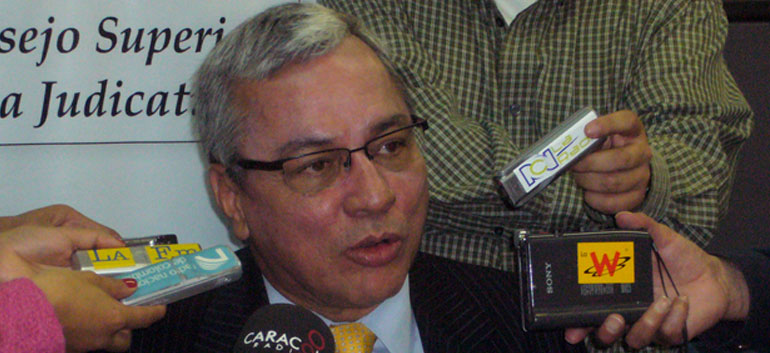One of the judges of Colombia’s Supreme Court of the Judiciary, Henry Villarraga, is being investigated for allegedly receiving a bribe to vote for a ‘false positive’ suspect’s case to be transferred to a military court, where the suspect could have expected leniency.
For over a year, Colombia’s police had been wiretapping Colonel Robinson Gonzales’ cellphone while investigating the death of two farmers who were allegedly executed by members of the armed forces and presented as guerrilla fighters in 2007. This practice of murdering innocent civilians and dressing them up as enemy combatants to boost reported kills became known as the ‘false positives’ scandal. An estimated 3,900 civilians were killed this way during the mid-2000’s.
The wiretaps allegedly revealed meetings between Gonzales and Judge Villarraga held in a secluded military base in Colombia’s capital city of Bogota. In those meetings, Gonzales appeared to request for his case to be tried in a military court rather than in a civilian court, as he would be more likely to receive a lenient sentence in the military penal system.
The government is currently embroiled in a debate over reforming the military justice system to avoid such bias toward members of the military.
MORE: Colombia court knocks down controversial military justice law
According to the recordings, released by news outlet Noticias Uno on Sunday, the Colonel offered to pay the Judge $200,000 to make the switch happen. When the vote was cast in the high court about transferring Gonzales’ case to the military court, Villarraga was the only judge to vote for the transferral. He is now under investigation.
“I have never received a single peso to vote for something,” said Villarraga to newspaper El Tiempo after the recordings emerged. He added that he had nothing to hide, saying that his decision on Gonzales was in keeping with hundreds of rulings that he had made in the past on the ‘false positives’ issue. He also claimed that there was no proof that the voice on the recordings was his.
“I cannot be sure that the voice on the tapes is mine, or if they have been edited…But I cannot deny speaking with him because I am a public servant,” he said.
One of Colombia’s four high courts, the Supreme Court of the Judiciary is in charge of managing and enforcing the law within the legal system of Colombia.


